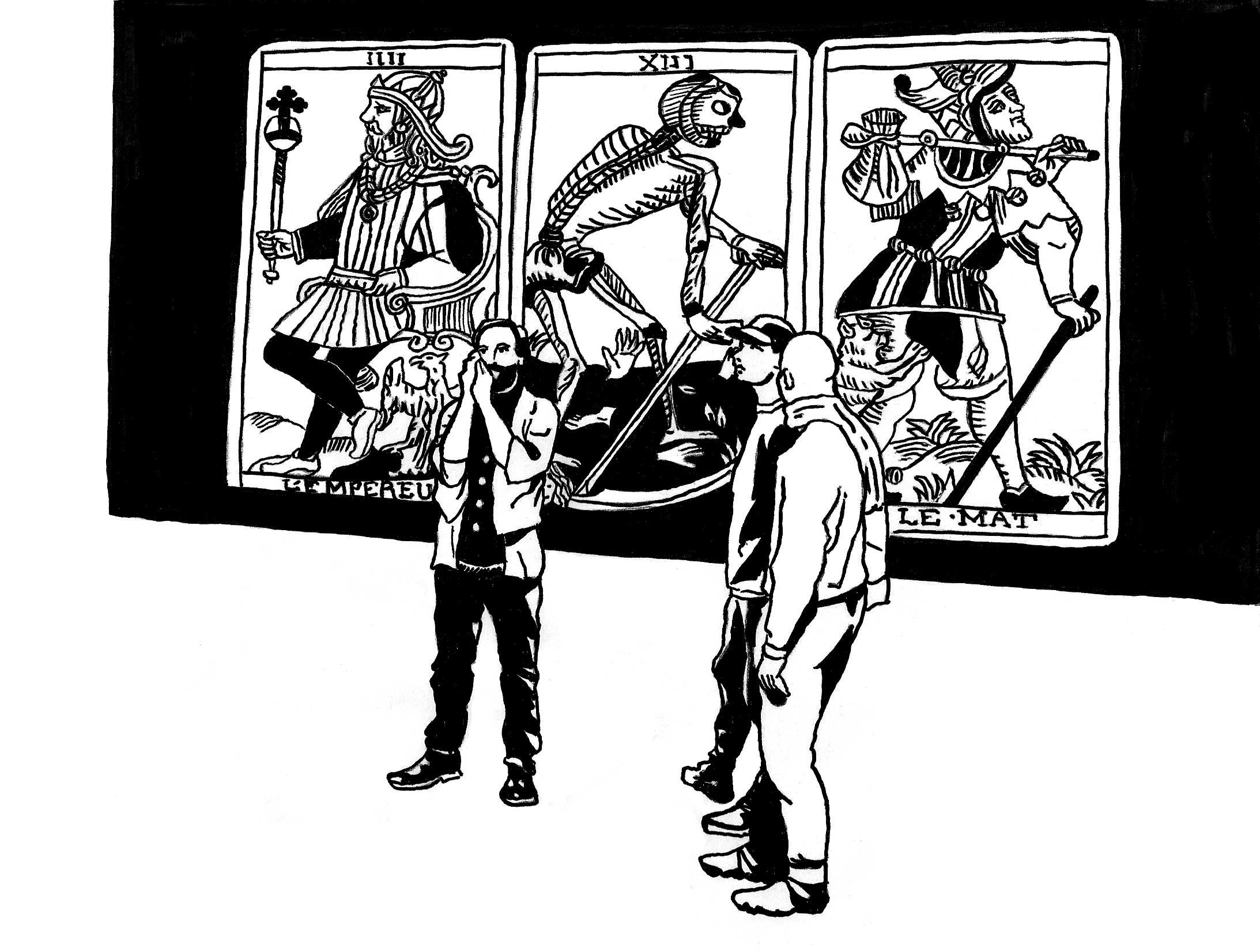2018-2019 The Factory: Beyond Fictocriticism ~ Towards Roaming Assembly #26 curated by David Maroto
Beyond Fictocriticism from Month to Month & Chronicles
Students: Bethany Crawford, Ciaran Wood, Ciprian Burete, Dayna Casey, Dina Mohamed, Edel O’Reilly, Eric Peter, Hannah O’Flynn, Julian Fricker, Marc Norbert Hörler, Matthieu Blond, Nilz Källgren, Risa Horn, Samantha McCulloch, Teresa Distelberger, Vita Buivid, Zachary Schoenhut.
Conceptual Framework: David Maroto
Guest tutors: t.b.c.
Duration: DAI - WEEK 2, 3, 5, 6 & 7
Beyond Fictocriticism
Beyond Fictocriticism is the title of a conversation between Chris Kraus and Mark von Schlegell commissioned and co-edited by David Maroto for Obieg Magazine no. 8: ‘Art & Literature: A Mongrel’s Guide’. In it, both writers speak about their novels being ‘very informed, in different ways, by research’. Borrowing their title, this Factory’s main goal is to explore innovative ways to carry out artistic research by blending theory and fiction, research and performance.
Professor Carl Rhodes defines fictocriticism as ‘a writing engaged in genre-bending as a literary and theoretical engagement with existence and selfhood’.[1] According to him, fictocriticism’s multidisciplinary approach seeks to ‘blur the boundaries between the fictional, the factual and the theoretical’.[2] In an email exchange between Rhodes and Maroto, the former stated that fictocriticism ‘is methodological, but it is about blurring the traditional distinctions between style and content as well. The text not being a neutral conduit of meaning is central to the method and the object of research, in that sense.’
What can we learn from fictocriticism? How to employ writing as a research method? What can artists and scholars gain from using creative writing tools in favour of artistic research? How to retain cognitive value through the use of fiction? Can research be performed? These questions will serve as the springboards for this workshop. Participants, organised in smaller groups, will identify content areas that they will critically explore by means of fiction writing. The emphasis is on the process – writing will entail a performative element. There will be time to produce the text as well as to discuss it with the rest of the group while still in progress.
This Factory will build the road towards Roaming Assembly #26. The resulting fictocritical texts – much like a libretto – will be compiled in a ‘reader on stage’ to be performed and continue to be written through the symposium, complemented by guest speaker’s interventions. The Roaming Assembly is envisioned as an afternoon of discussion, performance, and a sharing of methodologies across disciplines. Please take notice that this Factory spans for a period of one and a half academic years (2018–2019 and half of 2019–2020).
[1] Rhodes, C. (2015) Writing Organization/Romancing Fictocriticism. Culture and Organization, vol. 21, no. 4, p. 289.
[2] Ibid, p. 294.
Basic bibliography
Browing, B. (2017) The Gift. Minneapolis: Coffee House Press.
Critchely, S. (2014) Memory Theatre. London: Fitzcarraldo Editions.
Kraus, C. (2016) I Love Dick. London: Serpent’s Tail.
McKee, F. (2017) Even the Dead Rise Up. London: Book Works.
BACK TO PLANETARY CAMPUS : THE FACTORY

